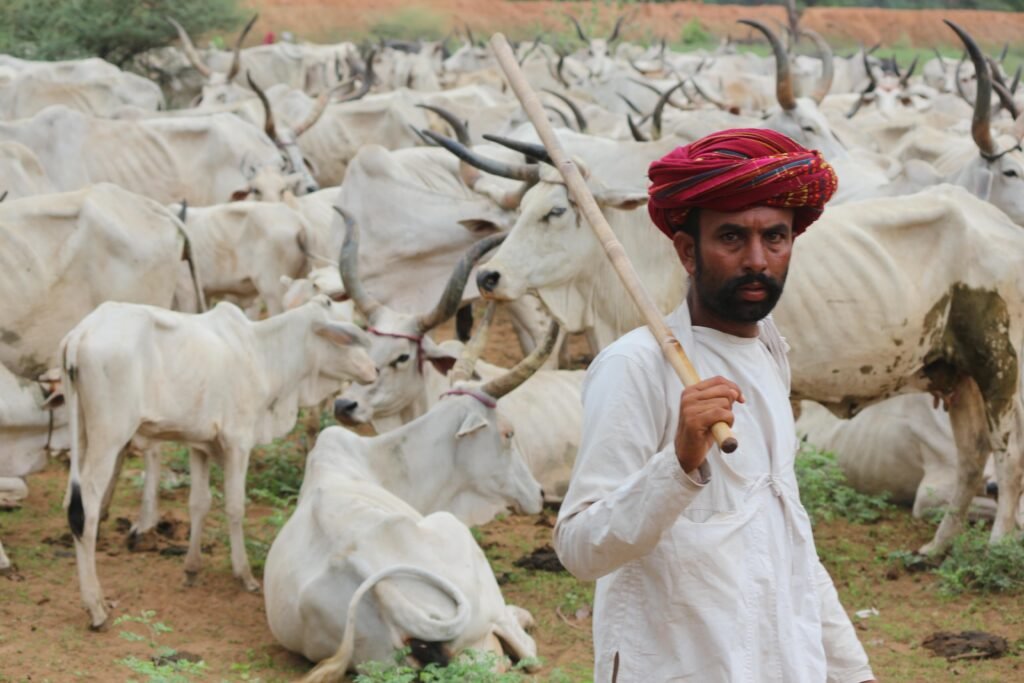Pastoralists are traditional livestock herders who have a mobile lifestyle, i.e., they migrate seasonally with their herds, often across long distances. In India, such communities are spread across 17 states, but there is no official statistical data on them, not even basic information pertaining to their numbers. They are sometimes described as being 35 million in totality, sometimes as comprising 6% of India’s population, but there is no clear source or basis for these figures. More recently, the League for Pastoral Peoples and Endogenous Livestock Development (LPP) puts their number at 13 million. Their mobile lifestyle makes enumeration, whether of the pastoralists or of their livestock, difficult for census takers.
Now, however, as India celebrates its 75th year of Independence, two important new initiatives are beginning to address this issue as well as the wider need for a focus on the welfare of pastoralists. First, in an historic and commendable move, the government has decided that in the 2024 livestock census, a special provision will be made for pastoral livestock. There is an active process of planning already underway to deal with the challenges of what will be quite a remarkable exercise. This means going community by community and mapping their movements in relation to the four-month scheduled census so that enumerators will be sure of including every animal as well as ensuring that double counting doesn’t take place. The second and equally important step has been to create a Pastoral Cell in the Ministry of Fisheries, Animal Husbandry and Dairying for targeted support to such communities.
Paving the way for these initiatives has been the government’s sustained and proactive engagement with pastoralist communities and CSOs working with them. The circular issued by the Ministry on August 28, 2023 announcing the census also spoke of conducting workshops on the issues concerned. The circular also states that information for state-wise lists of pastoralist communities, seasonal cattle grazing and migration routes, socio-economic status of the communities and other information is to be collected with the help of various non-governmental organizations, in which Sahjeevan, Kachchh, and MARAG, Ahmedabad, have been included. Sahjeevan will function as a link between various organizations of the country to coordinate and collect primary information that will be handed over to the Central Government.
Sahjeevan, which has been working on pastoralism for the last couple of decades, has been facilitating the engagement process in various ways. Over the last few years, the Living Lightly exhibitions hosted by its Centre for Pastoralism (CfP) and held in different States have become a venue for workshops, dialogues and consultations between pastoralist communities and the government. At the recent event in Bhuj, Kachchh organized jointly by Sahjeevan/CfP and the Living and Learning Design Centre as part of the latter’s winter festival, 150 pastoral youth from 17 states met government officials to discuss a range of issues related to the future of pastoralism. Gracing the event, Shri Parshottam Rupala, Union Cabinet Minister of Fisheries, Animal Husbandry and Dairying underscored the importance of the pastoral livestock census and the government’s commitment to it. This has been followed by a three-day workshop in Delhi from 28th to 30th April, 2023, with officials from the government explaining how the census would be undertaken and responding to queries and concerns expressed by pastoralists.
2026 has been declared the International Year of Rangeland and Pastoralists by the UN and India is one of the signatories. In the run-up to that global highlighting, the pastoral livestock census will be an important contributor to formulating policies that will anchor the overall development of pastoralists and their livestock. It will also be a significant step in recognizing their significant roles in the sustainable stewardship of the commons, the creation and conservation of India’s livestock genetic diversity and the varied ways in which they contribute to the national economy.

PC: Raj